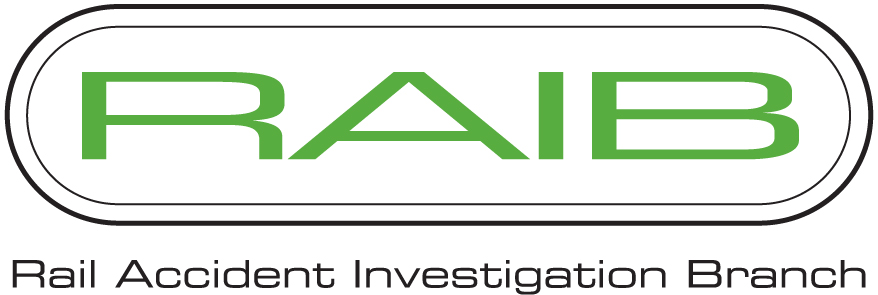Serious operating irregularity at Romney Sands, 28 August 2019
Published 14 October 2019
1. Important safety messages
This incident highlights the particular risk associated with the operation of single line railways which are worked with the tablet and ticket system. More generally the incident demonstrates the importance of:
- using suitable communications protocols to help reach a clear understanding about what actions are required
- recognising that while people are being trained, they may be more likely to make incorrect decisions, especially in situations which are outside the normal routine
- having systems and processes in place which can provide additional safeguards when safe operations otherwise rely on the actions of people
2. Summary of the incident
At around 10:37 hrs, a passenger train left Romney Sands station, Kent, on the Romney, Hythe and Dymchurch Railway, going towards New Romney, and entered a single line section of track. When the train had travelled about 100 metres beyond the station, the driver saw another train coming towards him on the single line. He used the railway’s open channel radio system to send an emergency “stop” message, stopping his train as he did so. The driver of the other train heard the message and also stopped. The two trains came to a stand about 316 metres apart. No-one was hurt.
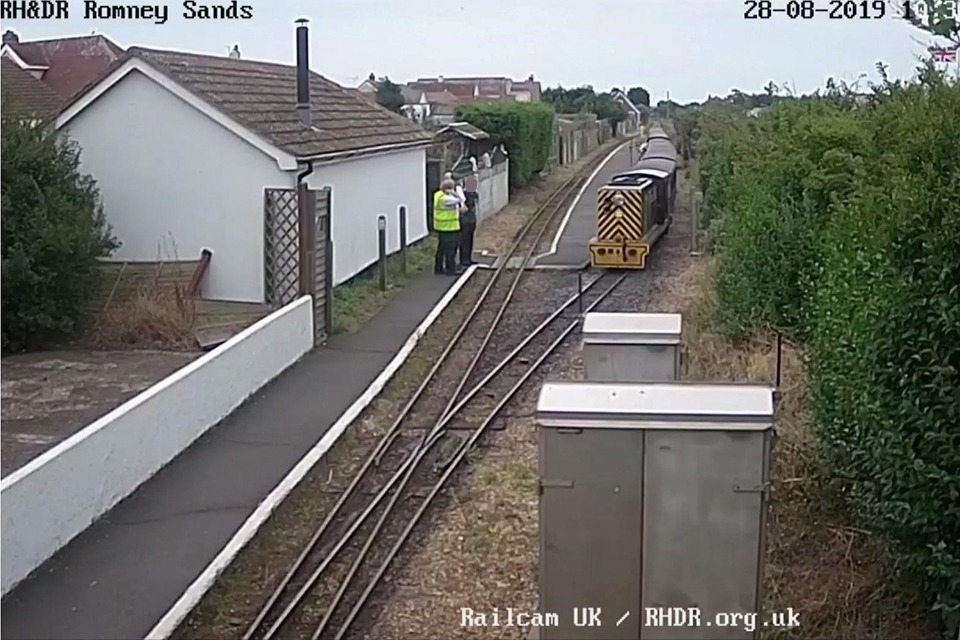
Train 12 and the driver, stationmaster and trainee stationmaster in conversation at Romney Sands station before the incident (courtesy RHDR)
3. Cause of the incident
The single line section between New Romney and Romney Sands is two miles (3.2 km) long and is worked on the tablet and ticket system. There is a single tablet (coloured red) for the section. Possession of this tablet is a train driver’s authority to occupy the single line. However, if two trains going in the same direction need to pass in succession through the section, the stationmaster may issue the driver of the first of these with a paper ticket (also coloured red), provided the tablet is present and is shown to the driver. The section between Romney Sands and Dungeness is worked in the same manner; the tablet and tickets for this section are coloured green.
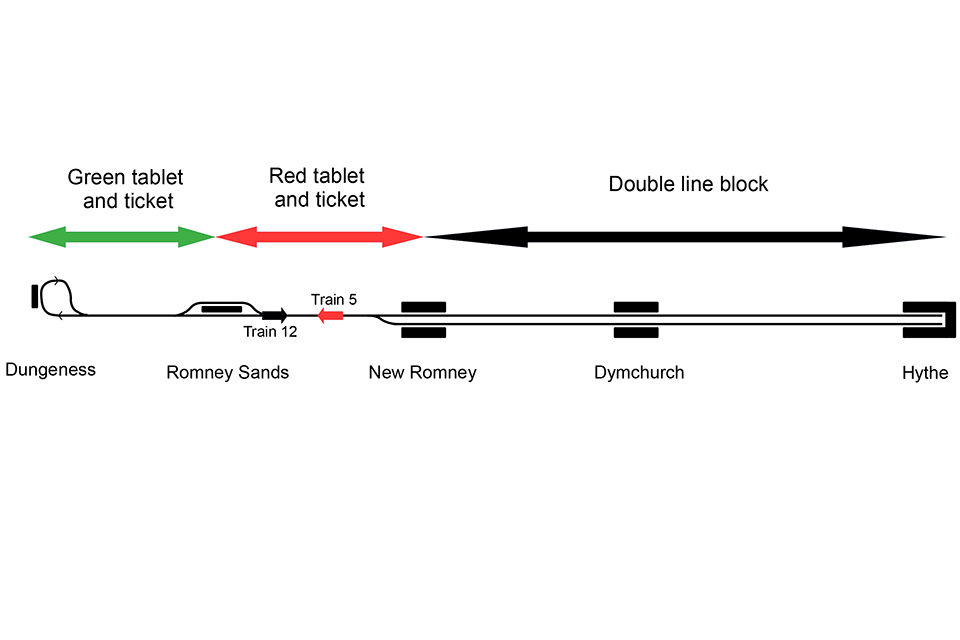
Diagram of running lines and methods of working on the Romney, Hythe & Dymchurch Railway. Station details and minor stops omitted.
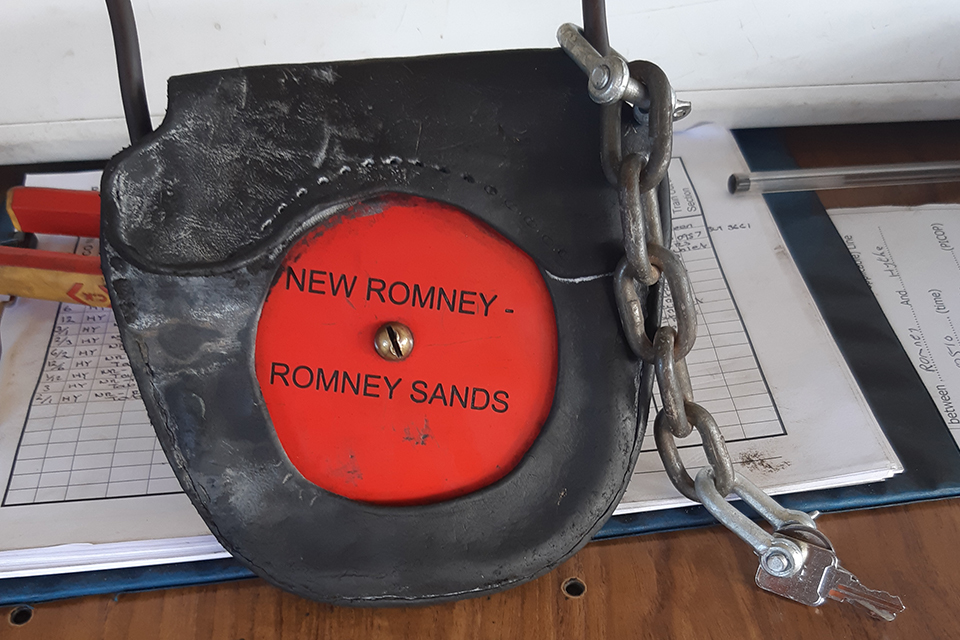
The tablet for the New Romney – Romney Sands section (courtesy RHDR)
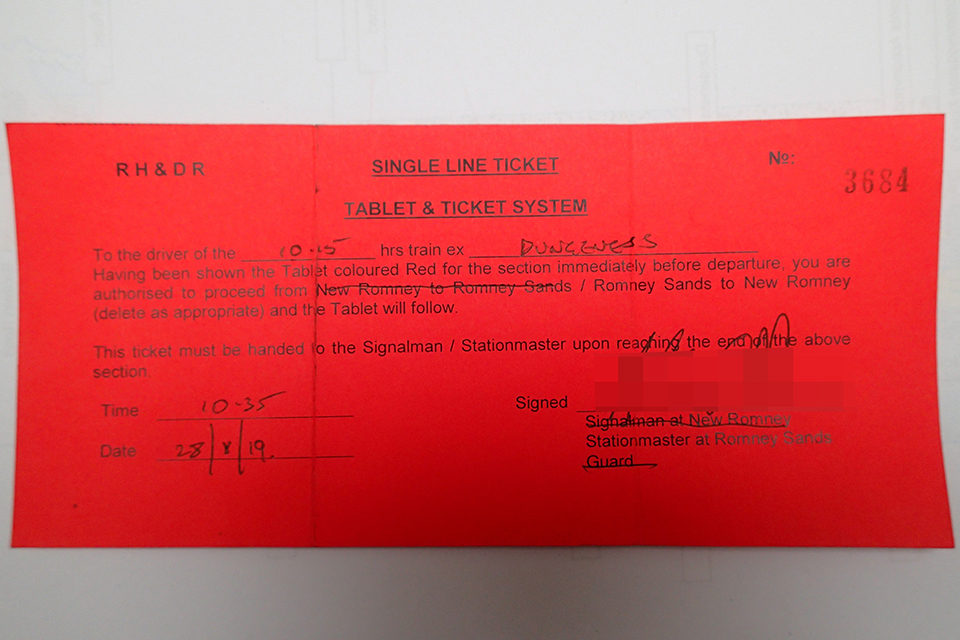
Ticket for the Romney Sands – New Romney section, issued for the train involved in the incident
The 10:15 hrs train from Dungeness to Hythe was scheduled to depart from Romney Sands at 10:33 hrs, carrying the red tablet. However, on this occasion a train elsewhere on the railway was running late. To minimise the consequences of this lateness, the railway’s controller decided to rearrange the timetable, changing some of the arrangements for trains to pass each other at the ends of the single line sections. One result of this was that the train which was due to leave Romney Sands at 10:33 hrs (train number 12) would need to take a ticket instead of the tablet, so enabling the following train to travel with the tablet.
Having decided on this plan, the controller instructed the signaller at New Romney to contact Romney Sands station and tell the stationmaster there to issue a ticket to train number 12. The signaller used the telephone, rather than the radio system, to contact Romney Sands. His call was answered by a trainee stationmaster, who was dealing with passengers in the booking office. There was a conversation in which the signaller explained that the crossings would be changing, and that train 12 would therefore need to take a ticket, but there is evidence that the trainee stationmaster did not fully understand the message. The trainee stationmaster, who was an experienced volunteer on the railway but was only on his second day’s training for the tablet and ticket system, wrote out a ticket.
By this time, train number 12 had arrived at Romney Sands. The train driver and the Romney Sands stationmaster were on the platform, awaiting the arrival of train number 5 from New Romney, which number 12 was due to pass there at 10:33 hrs, exchanging tablets in the process. At about 10:36 hrs, the trainee stationmaster left the booking office and went to the platform, with the ticket.
A jovial and informal conversation between the three members of staff followed, the result of which was that they all concluded that train number 5 was not coming from New Romney, and that train number 12 should leave with a ticket. The stationmaster took the green tablet (for the Dungeness – Romney Sands section) from the driver of number 12, the trainee stationmaster handed the red ticket to the driver of number 12, and that train left Romney Sands, entering the single line section to New Romney. The incident concluded when the driver of number 12 saw number 5 approaching in the distance, as described above.
The incident occurred because:
a. there was no equipment or system in place to prevent a ticket being issued without the tablet being present
b. the signaller at New Romney and the trainee stationmaster at Romney Sands did not come to a clear understanding about what train movements were planned
c. the trainee stationmaster, who was not yet qualified in tablet and ticket working, prepared and issued a ticket without having the tablet in his possession
d. the driver of number 12 accepted the ticket as authority to proceed to New Romney, without having seen the tablet for that section
e. the stationmaster at Romney Sands did not adequately supervise or challenge the actions of the trainee stationmaster
Since this incident, the Romney Hythe & Dymchurch Railway has introduced ticket boxes for its single line sections. The blank ticket forms are kept in the boxes, which can only be unlocked by a key attached to the tablet for the relevant section. The railway has also revised the training that it gives to people undertaking operational roles, and instructed staff that all messages about changes to the train service should be sent directly by the controller, using the radio system.
4. Previous similar occurrences
Near Abermule, Montgomeryshire (now Powys) on 26 January 1921, there was a head-on collision on a single line between two passenger trains, which resulted in the death of 17 people and serious injuries to 36 others. This disaster occurred because of a chain of errors, misunderstandings and non-compliance with the rules by station staff and train crew. There are clear parallels with the events leading up to the incident at Romney Sands.
